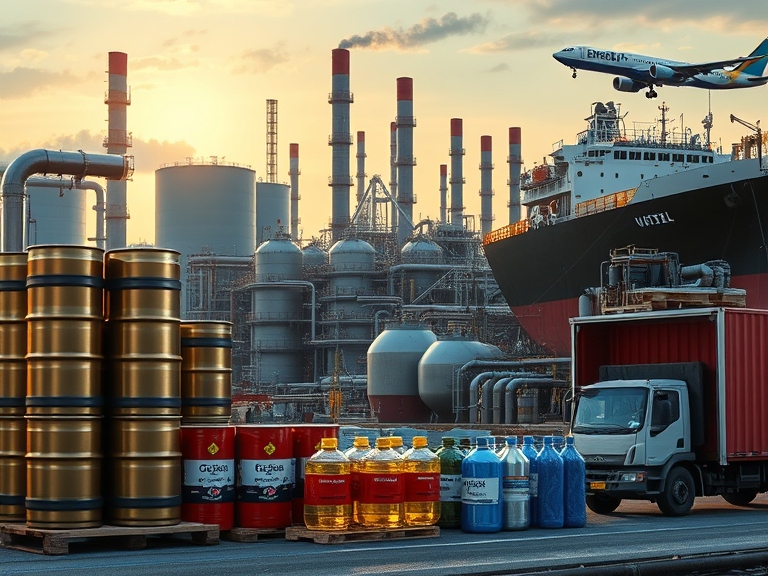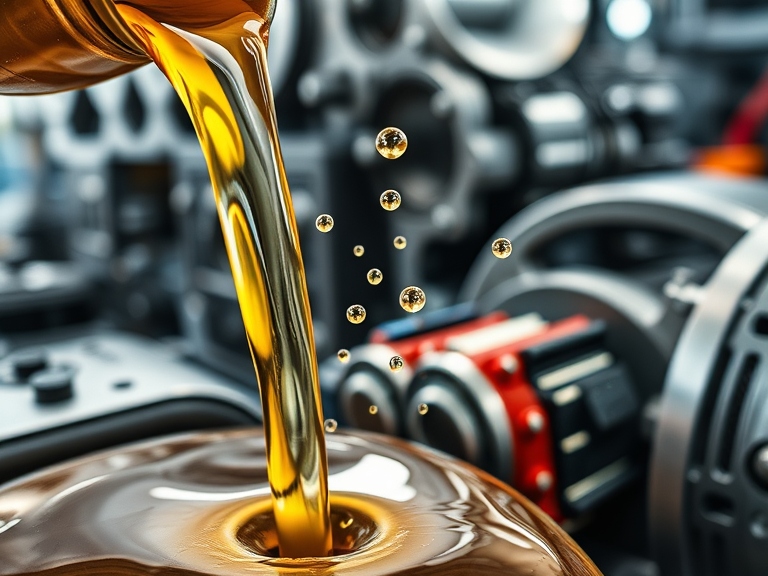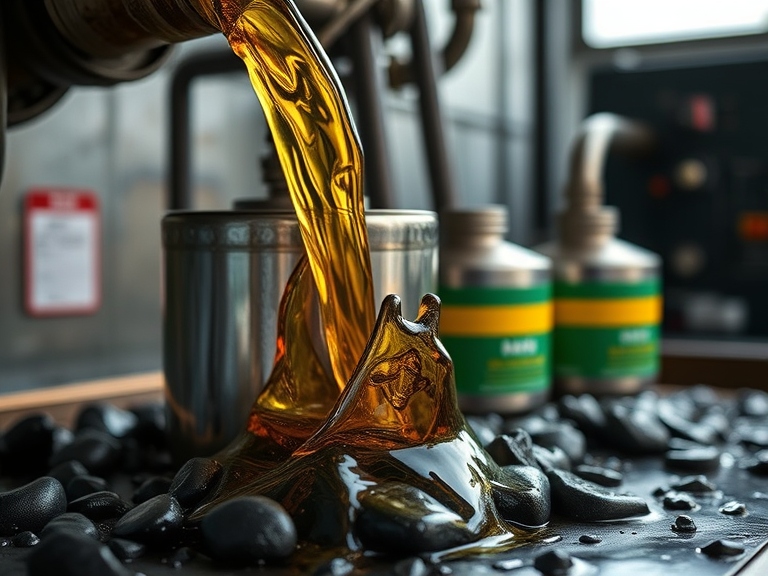Introduction to Petroleum Products
Petroleum products are a diverse range of substances derived from crude oil and natural gas through the refining process. These products are essential to modern industries, transportation, heating, and the energy sector. From the gasoline used to power vehicles to the petrochemicals that go into plastics and fertilizers, petroleum products touch almost every aspect of our daily lives. The petroleum industry plays a central role in global economic activity, driving not only energy production but also manufacturing and technological advancements.
At Gloria Holding Group, we specialize in the distribution and trading of high-quality petroleum products. Whether you require fuel for transportation, industrial applications, or energy production, our product range is designed to meet the needs of businesses and industries worldwide.
What Are Petroleum Products?
Petroleum products are derived from crude oil through a complex series of processes at refineries. These processes include distillation, cracking, and reforming, which separate and convert crude oil into usable products. Petroleum is composed of hydrocarbons, and by manipulating these hydrocarbons in various ways, we create different products with specific applications.
Some of the most common petroleum products include:
- Gasoline (Petrol)
- Diesel
- Jet Fuel
- Liquefied Petroleum Gas (LPG)
- Kerosene
- Heating Oil
- Petrochemicals
- Asphalt
Each of these products has distinct properties, uses, and environmental considerations, but they all share a common origin—crude oil.
Types of Petroleum Products
Petroleum products are broadly classified into two categories: refined fuels and petrochemicals. Here’s a breakdown of the main types:
1. Refined Fuels
These are products used directly as fuels for vehicles, industrial machinery, and energy production. They include:
1.1 Gasoline (Petrol)
- What is Gasoline? Gasoline, commonly known as petrol, is one of the most widely used petroleum products worldwide. It is a refined fuel used primarily in internal combustion engines in vehicles like cars, motorcycles, and small machinery.
- Uses: Primarily used as a fuel for cars, trucks, and other transportation vehicles. Gasoline is also used in small engines, such as lawnmowers, motorcycles, and power tools.
- Properties: Gasoline is a volatile, flammable liquid with a high energy content. It is typically combined with additives to improve engine performance and reduce emissions.
1.2 Diesel Fuel
- What is Diesel? Diesel is another common refined fuel, but it is heavier and denser than gasoline. It is used in a wide range of vehicles and industrial applications.
- Uses: Diesel is used in trucks, buses, trains, boats, and heavy equipment. It is also used in electricity generation and industrial heating.
- Properties: Diesel engines are known for their efficiency and higher fuel economy compared to gasoline engines. Diesel has a higher energy content per liter and emits lower carbon dioxide but produces more particulate matter and nitrogen oxides (NOx).
1.3 Jet Fuel
- What is Jet Fuel? Jet fuel is a specialized form of petroleum product designed for use in jet engines. It is a highly refined type of kerosene, optimized for high-efficiency combustion at high altitudes.
- Uses: Used in commercial airplanes, military aircraft, and private jets. It provides the necessary energy for jet propulsion.
- Properties: Jet fuel is typically kerosene-based and has a high flash point, making it safe for use in aviation.
1.4 Liquefied Petroleum Gas (LPG)
- What is LPG? LPG is a mixture of propane and butane, two gases that are found in natural gas and crude oil. LPG is stored as a liquid under moderate pressure.
- Uses: Used primarily for heating, cooking, and fuel for vehicles (LPG vehicles). It is also used in industrial applications and as a propellant in aerosols.
- Properties: LPG is an efficient and clean-burning fuel that can be stored and transported easily. It is used in both residential and commercial settings.
1.5 Kerosene
- What is Kerosene? Kerosene is a liquid hydrocarbon fuel that is commonly used in heating, cooking, and aviation.
- Uses: Kerosene is commonly used in jet engines (as jet fuel), as well as in lamps, stoves, and in certain industrial heating applications.
- Properties: Kerosene has a relatively high energy content and burns cleanly. It is a highly versatile fuel with applications across multiple sectors.
1.6 Heating Oil
- What is Heating Oil? Heating oil is a liquid petroleum product derived from crude oil and used in furnaces and boilers to provide warmth for homes, buildings, and industrial spaces.
- Uses: Primarily used in residential and commercial heating systems.
- Properties: Heating oil is similar to diesel but is dyed for identification purposes. It is a cost-effective option for regions that lack access to natural gas.
2. Petrochemicals
Petrochemicals are chemical products derived from petroleum. These chemicals are essential raw materials for various manufacturing industries. They are used in the production of plastics, fertilizers, synthetic rubber, and many other consumer goods.
2.1 Ethylene
- What is Ethylene? Ethylene is a simple hydrocarbon and one of the most important building blocks in the petrochemical industry.
- Uses: Used to manufacture polyethylene (the most widely used plastic), as well as other chemicals like ethylene glycol (used in antifreeze).
- Properties: Ethylene is a colorless gas with a faint odor and is highly reactive.
2.2 Propylene
- What is Propylene? Propylene is another important petrochemical, widely used in the production of plastics and other synthetic materials.
- Uses: Used to create polypropylene (a widely used plastic), as well as other chemicals like acetone.
- Properties: Propylene is a flammable gas with a slightly sweet odor.
2.3 Benzene
- What is Benzene? Benzene is an aromatic hydrocarbon and one of the simplest organic compounds in the petrochemical industry.
- Uses: It is used as a starting material for the production of styrene (which is used to make plastics) and various other chemicals.
- Properties: Benzene is highly toxic and carcinogenic, making its use and handling highly regulated.
2.4 Toluene and Xylene
- What are Toluene and Xylene? These are aromatic hydrocarbons commonly derived from crude oil and used in chemical manufacturing.
- Uses: They are solvents in paints, coatings, and adhesives and are also used in the manufacture of other chemicals.
- Properties: Both are flammable and have a distinct, sweet odor.
Uses of Petroleum Products
The uses of petroleum products span a vast array of industries and applications, making them integral to modern life. Some of the most significant uses include:
- Transportation
- Gasoline, diesel, and jet fuel power cars, trucks, airplanes, and ships, making them essential for global trade and transportation.
- Industrial Applications
- Diesel and heating oils are used in various industrial processes, including power generation, heating, and manufacturing.
- Energy Production
- Petroleum products like diesel and heating oil are used to generate electricity in some regions, especially in areas lacking access to natural gas.
- Manufacturing of Plastics and Chemicals
- Petrochemicals derived from petroleum products are used to create plastics, synthetic rubber, fertilizers, pharmaceuticals, and other essential goods.
- Household Uses
- Kerosene, LPG, and heating oil are commonly used for domestic heating and cooking, especially in areas where alternative energy sources are limited.
- Aviation and Marine
- Jet fuel and bunker fuel are crucial for the aviation and maritime industries, powering planes, cargo ships, and naval vessels.
Benefits of Petroleum Products
- Energy Density
- Petroleum products provide high energy content per unit, which is crucial for powering vehicles, machines, and generators over long periods of time.
- Versatility
- Petroleum products are used in many different industries, from transportation and heating to manufacturing and power generation.
- Global Availability
- Petroleum is extracted and refined in many parts of the world, making petroleum products widely available, even in remote or underdeveloped regions.
- Cost-Effectiveness
- Petroleum-based fuels are often more affordable than alternative energy sources like natural gas or electricity, particularly in regions where crude oil refining is already established.
- Ease of Transport and Storage
- Petroleum products can be transported over long distances by pipelines, ships, and trucks, and they can be stored for long periods, making them a flexible energy solution.
Environmental Considerations
While petroleum products have many advantages, they also present significant environmental challenges:
- Carbon Emissions
- Burning petroleum products releases carbon dioxide (CO2), a leading greenhouse gas contributing to climate change. Efforts are being made to reduce CO2 emissions through cleaner fuels and technologies.
- Air Pollution
- Petroleum products, particularly diesel and bunker fuel, emit pollutants like nitrogen oxides (NOx) and particulate matter, which can negatively impact air quality and public health.
- Oil Spills and Marine Pollution
- Accidental spills during transportation and storage can result in significant environmental damage, particularly to marine ecosystems.
Gloria Holding Group’s Petroleum Products
At Gloria Holding Group, we provide a wide range of high-quality petroleum products to meet the diverse needs of industries, businesses, and governments worldwide. Our products include:
- Gasoline (Petrol)
- Diesel Fuel
- Jet Fuel
- Liquefied Petroleum Gas (LPG)
- Kerosene
- Heating Oil
- Petrochemicals
We work closely with global suppliers to ensure that our products meet the highest standards of quality and performance, while also adhering to international safety and environmental regulations. Whether you’re in need of fuel for transportation, energy production, or industrial applications, Gloria Holding Group has the expertise and global reach to provide the right solution for your business.
Conclusion
Petroleum products are essential to modern life and industry. From transportation and energy production to manufacturing and chemicals, they play a vital role in powering the global economy. At Gloria Holding Group, we are committed to providing our clients with the highest quality petroleum products that meet their specific needs and support sustainable practices in an ever-evolving global market.
If you’re looking for a reliable partner for your petroleum product needs, Gloria Holding Group is here to help. Contact us today to learn more about our offerings and how we can support your business.



